Plastics
Plastic pollution isn’t just about litter. It’s a full-blown crisis rooted in overproduction and corporate greed. Driven by fossil fuels and corporate overproduction, plastic is choking our oceans, poisoning our communities, and deepening injustice across the globe.
From the air we breathe to the food we eat, its toxic footprint is everywhere, and it’s time to stop it at the source.
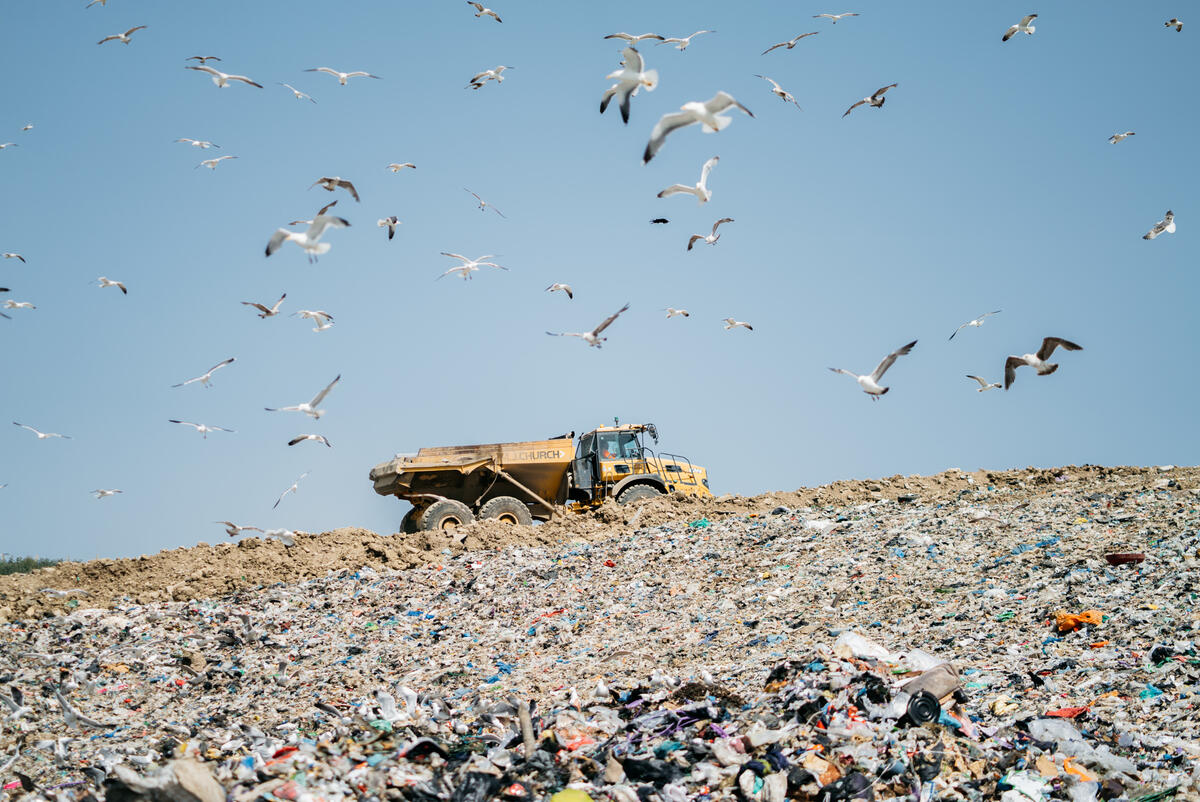
What We’re Facing
Plastics have become the go-to material for packaging, seen as cheap, durable, and convenient. But the true cost is hidden. This false solution has created a global waste crisis that pollutes our ecosystems, fuels climate change, and burdens future generations. Malaysia, like many countries, is drowning in plastic. From overflowing landfills to polluted coastlines, plastic is everywhere and it’s not going away on its own.
Behind the convenience of disposables lies a trail of destruction:
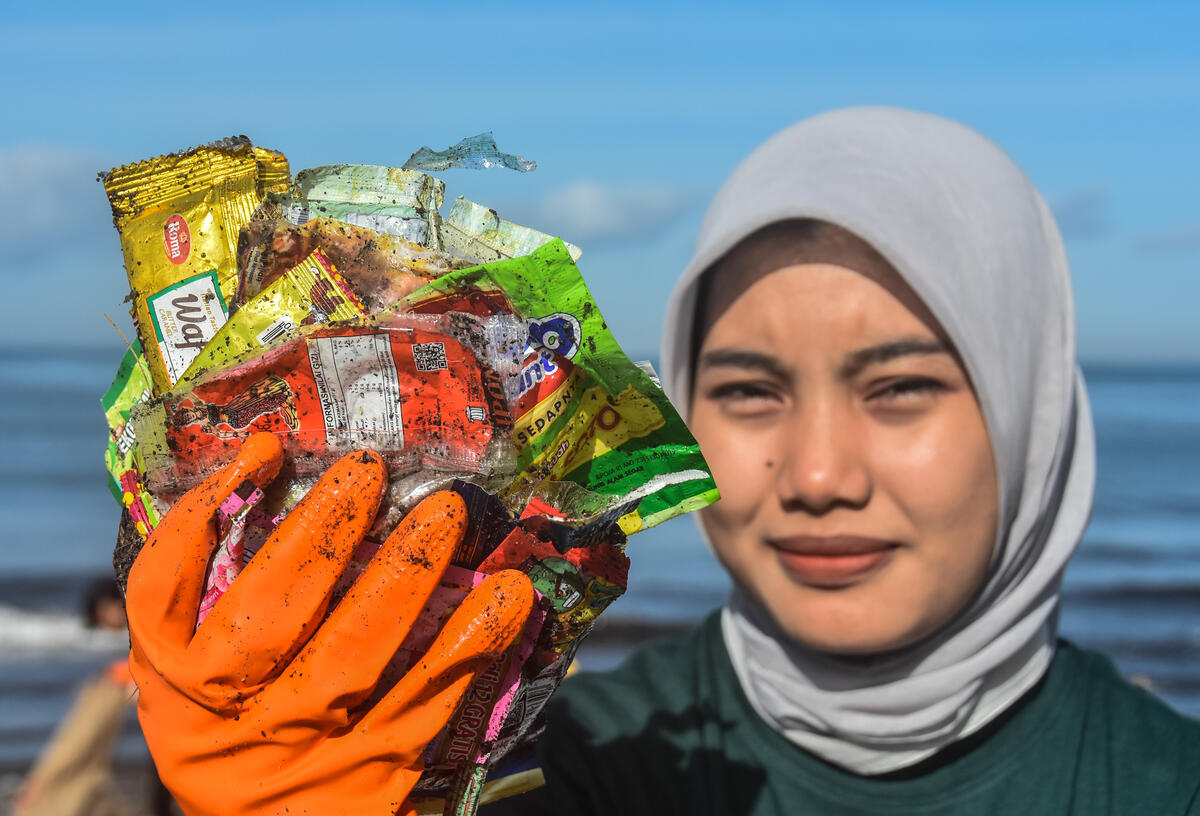
Overproduction crisis
139 million tonnes of single-use plastics were produced globally in 2021. The world is churning out disposable plastic faster than we can handle. Most of it used once and tossed.
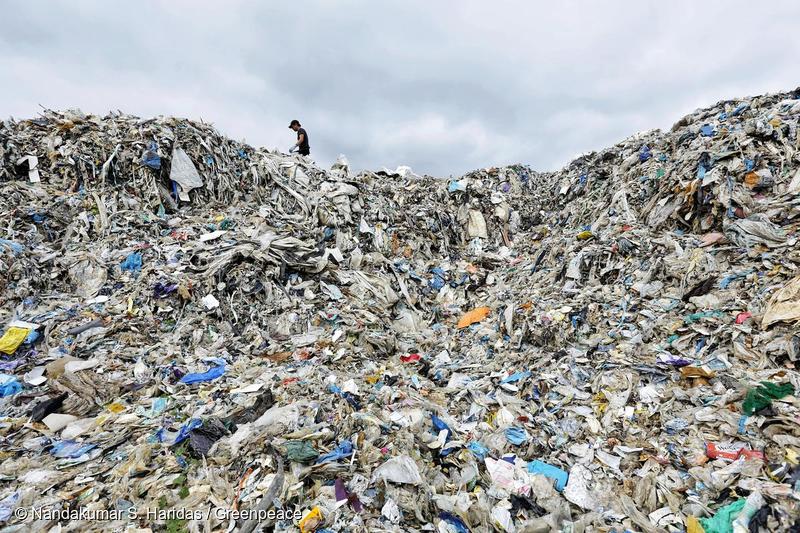
Malaysia’s mounting plastic waste
1.10 million tonnes of plastic are thrown away annually in Malaysia. From drains to seas, our country’s waste system is buckling under the pressure of plastic overload.
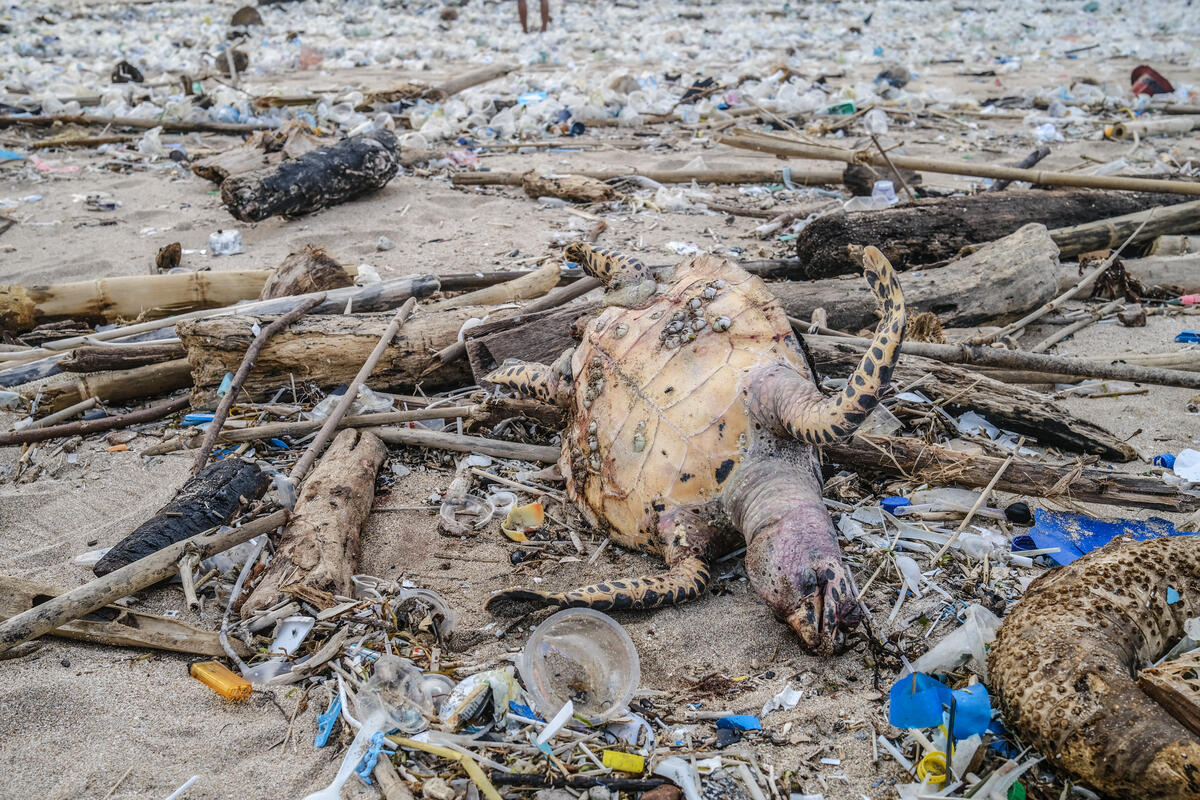
Plastic profits, nature losses
RM31 billion was contributed by the plastic industry to Malaysia’s economy in 2018.While the industry grows, the true cost is paid by people, nature, and future generations.
What We’re Building Together
We imagine a Malaysia and a world where reuse is the norm, not the exception, where communities thrive without plastic pollution, and the systems we rely on are built to last, not waste.
Reuse, not waste
Refill stations, returnable containers, and packaging-free choices become the default, cutting waste at the source and making green living accessible for all.
No more plastic excuses
Single-use plastics are banned, not delayed. Policies are shaped by science, justice, and people rather than corporate interests.
Accountability, not greenwashing
Big brands take responsibility for their plastic footprints. False solutions like “bioplastics” and offsets are replaced by real, reusable systems.
From global waste to global action
The Global Plastics Treaty becomes a turning point: slashing plastic production, protecting frontline communities, and holding polluters accountable.
Our Work for Plastic-Free Future
We believe in a world where the land, sky, oceans, and water are home to an abundance of life, not an abundance of plastic, and where the air we breathe, the water we drink and the food we eat is free of toxic by-products of plastic pollution.
Hence, we’re driving global policies to supporting local solutions, holding corporations accountable, and empowering communities to lead the change.
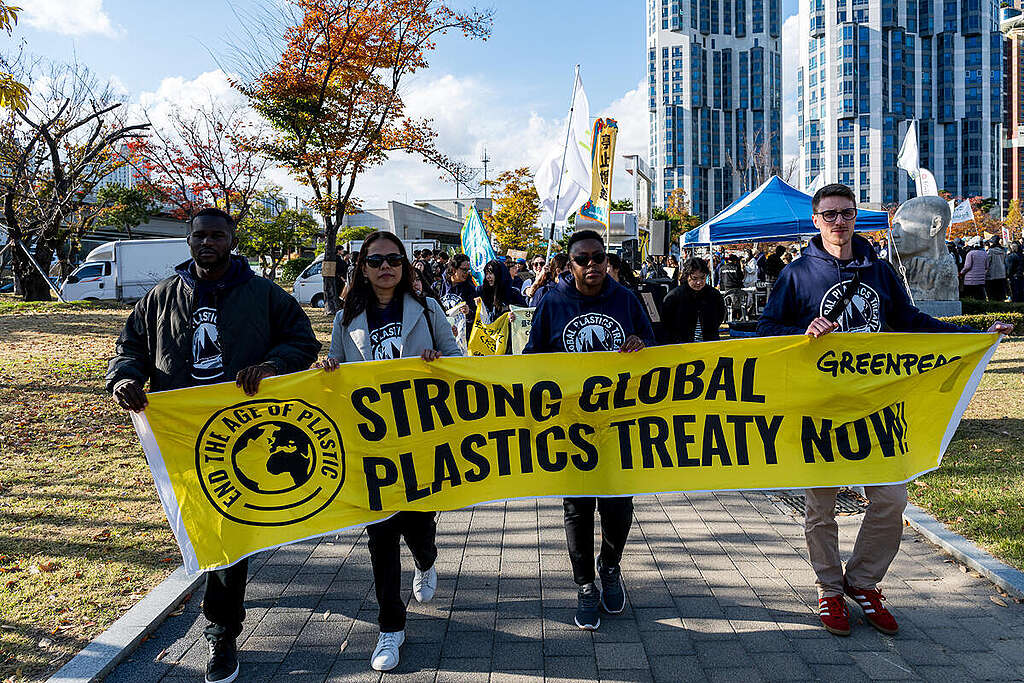
Global Plastics Treaty
Through activism, policy engagement, and research and investigation, we’re pushing for a legally binding treaty that holds corporations accountable, protects communities, and kickstarts a global shift toward reuse.
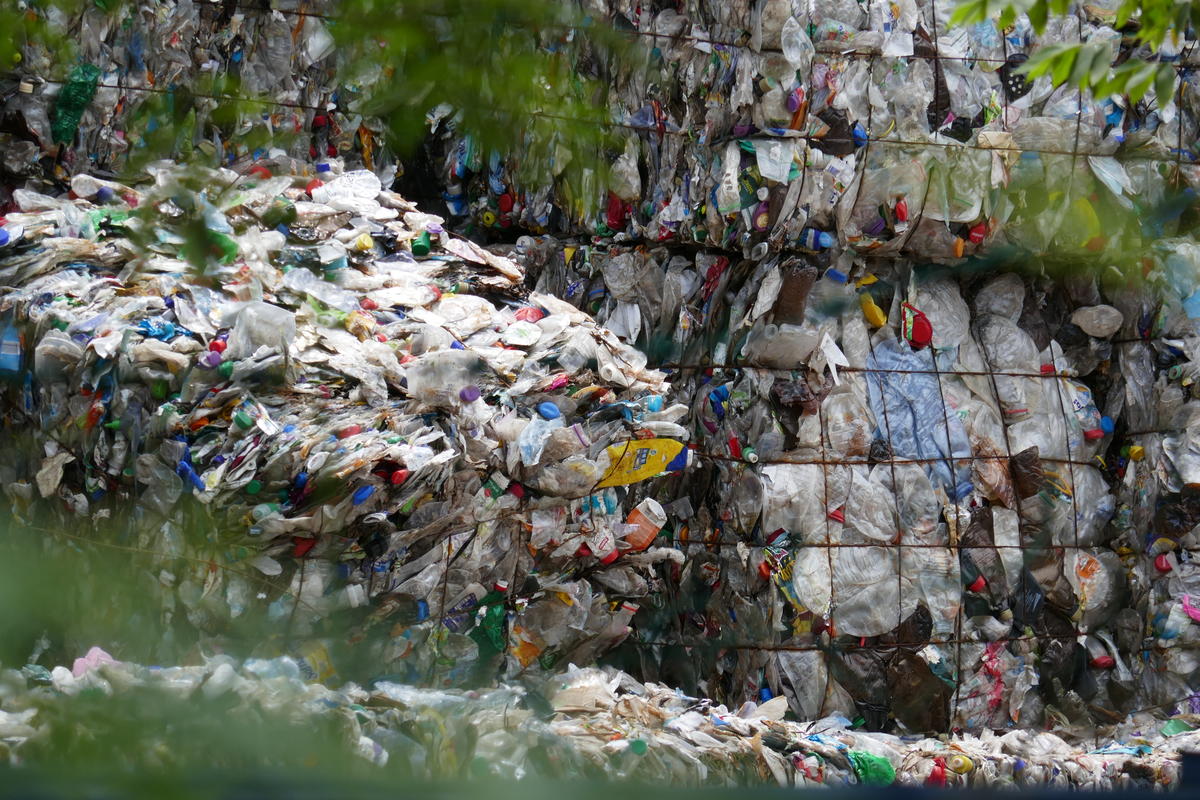
Plastic waste trade
After a flood of foreign waste in 2018, we worked with impacted communities to expose illegal dumping, shut down unlicensed facilities, and return toxic trash to its senders.
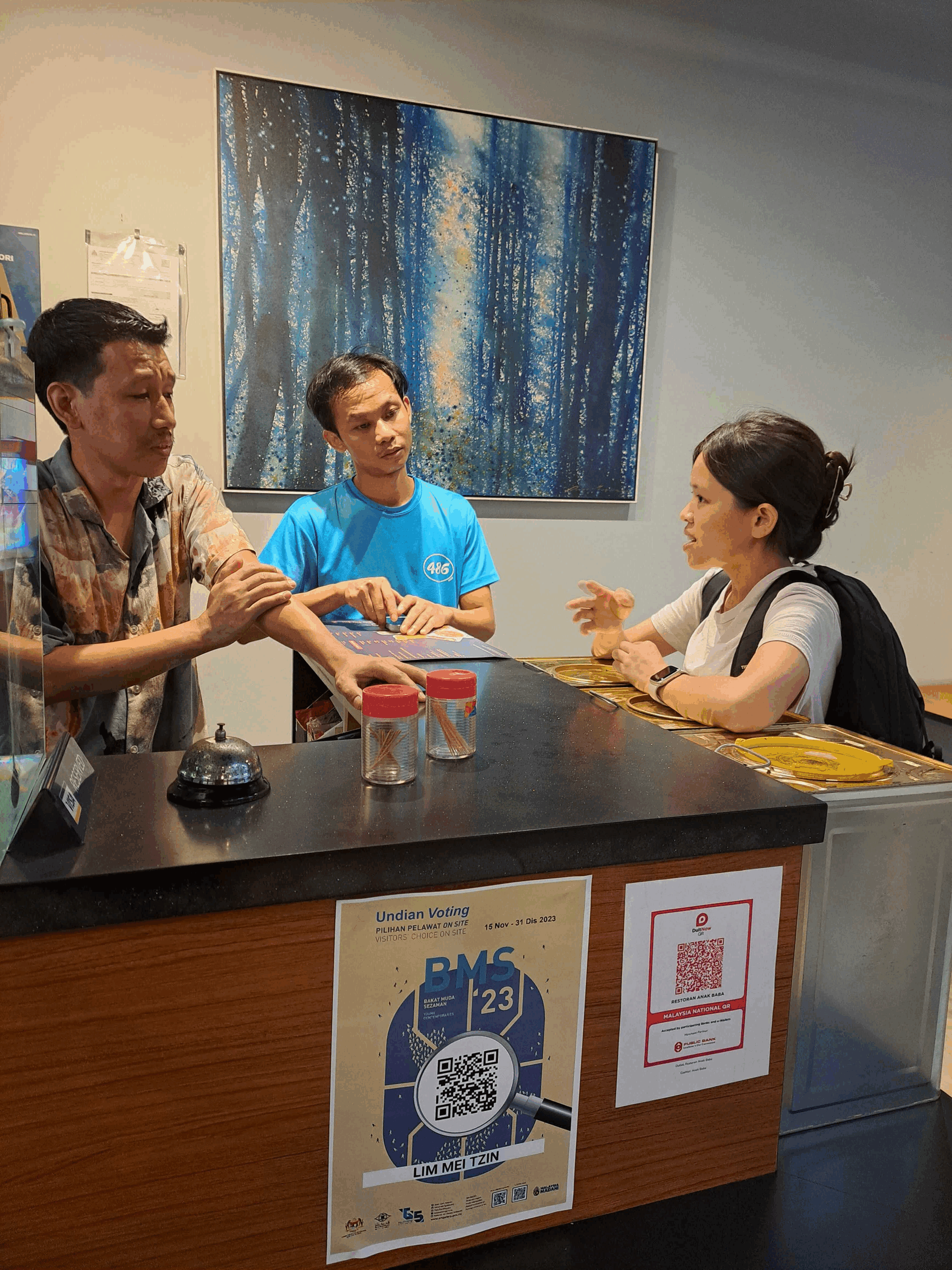
Community-led program
GenerasiREuse (genREuse) is one of the programs to shift everyday dining toward reuse plastics. With volunteers and restaurants, we’re piloting practical solutions to cut single-use plastics and inspire wider adoption.
How You Can Help
-
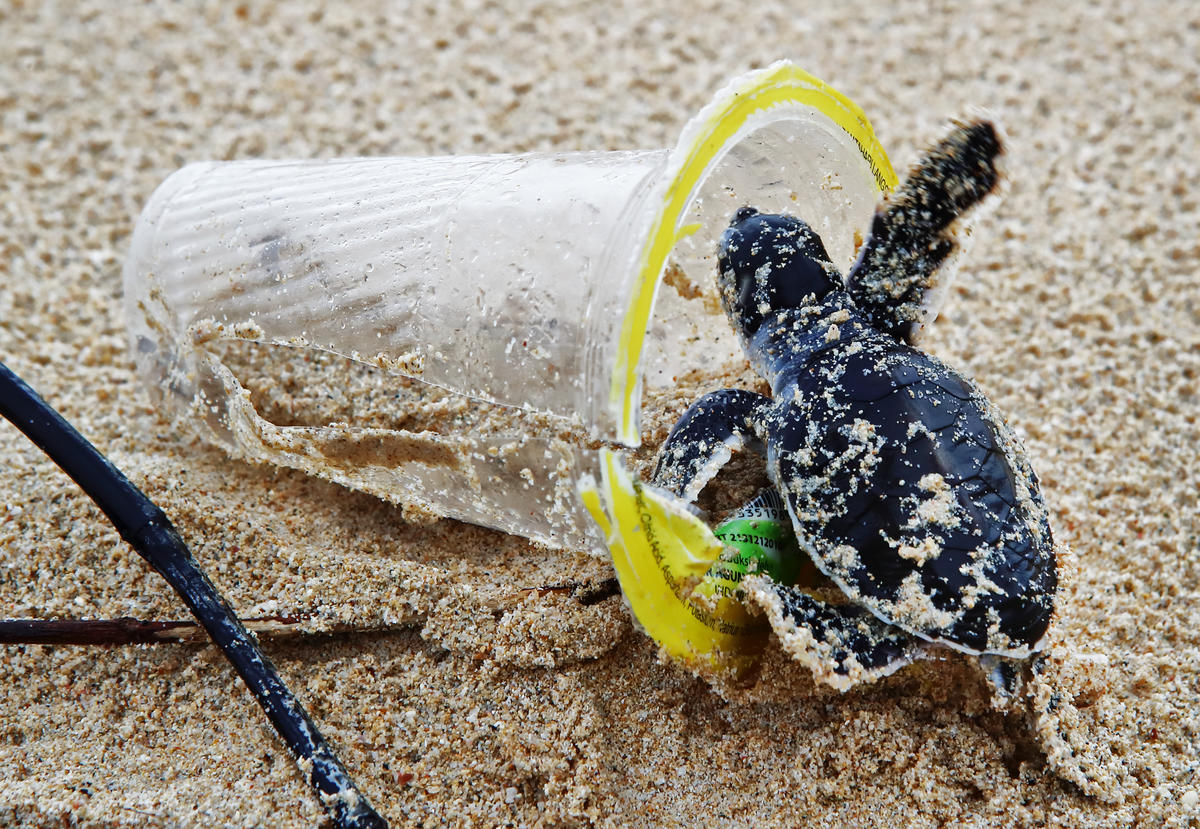
Let’s end the age of plastic!
We have a rare chance to turn the tide on plastic. Add your name before the final Global Plastics Treaty talks this August.
-
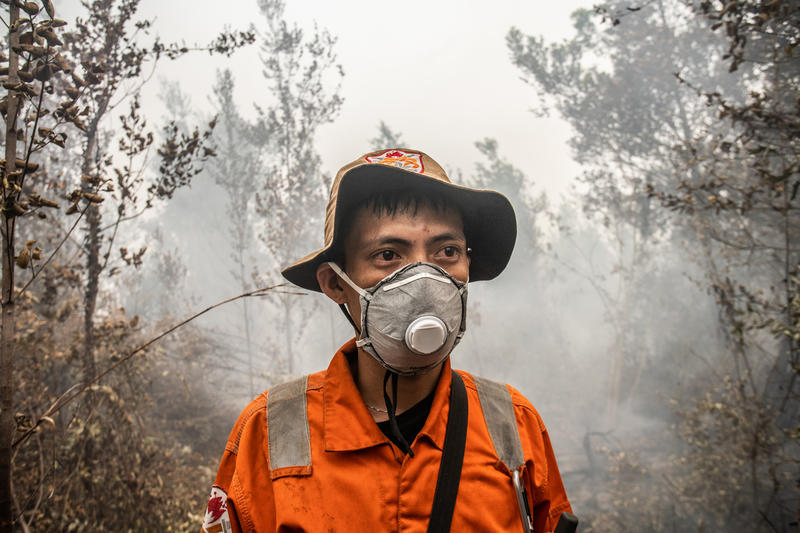
Every Donation Counts
We can’t do this without your help. Take action for environment protection, please make a donation today.
-
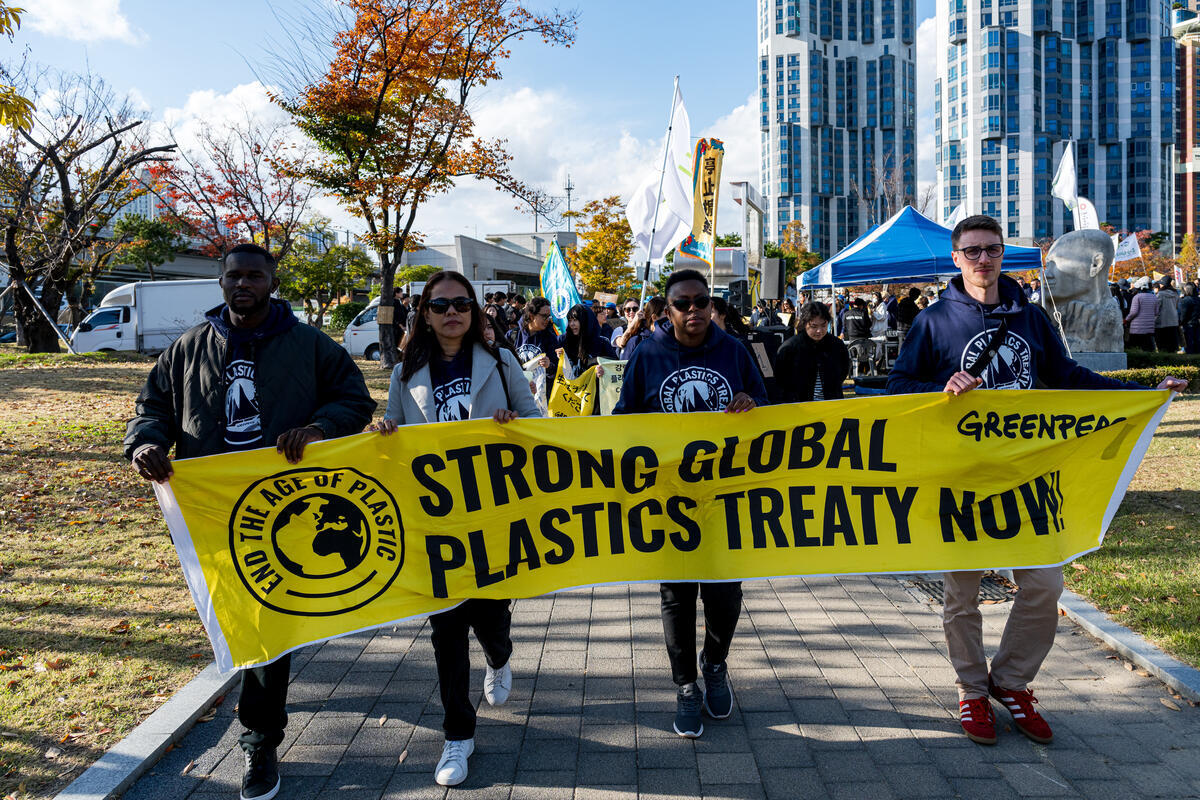
Greenpeace to new plastics treaty talks chair: Restore trust, transparency and ambition
Greenpeace International said the appointment must mark a turning point for the Global Plastics Treaty talks and the start of a renewed effort to rebuild trust in the process
-
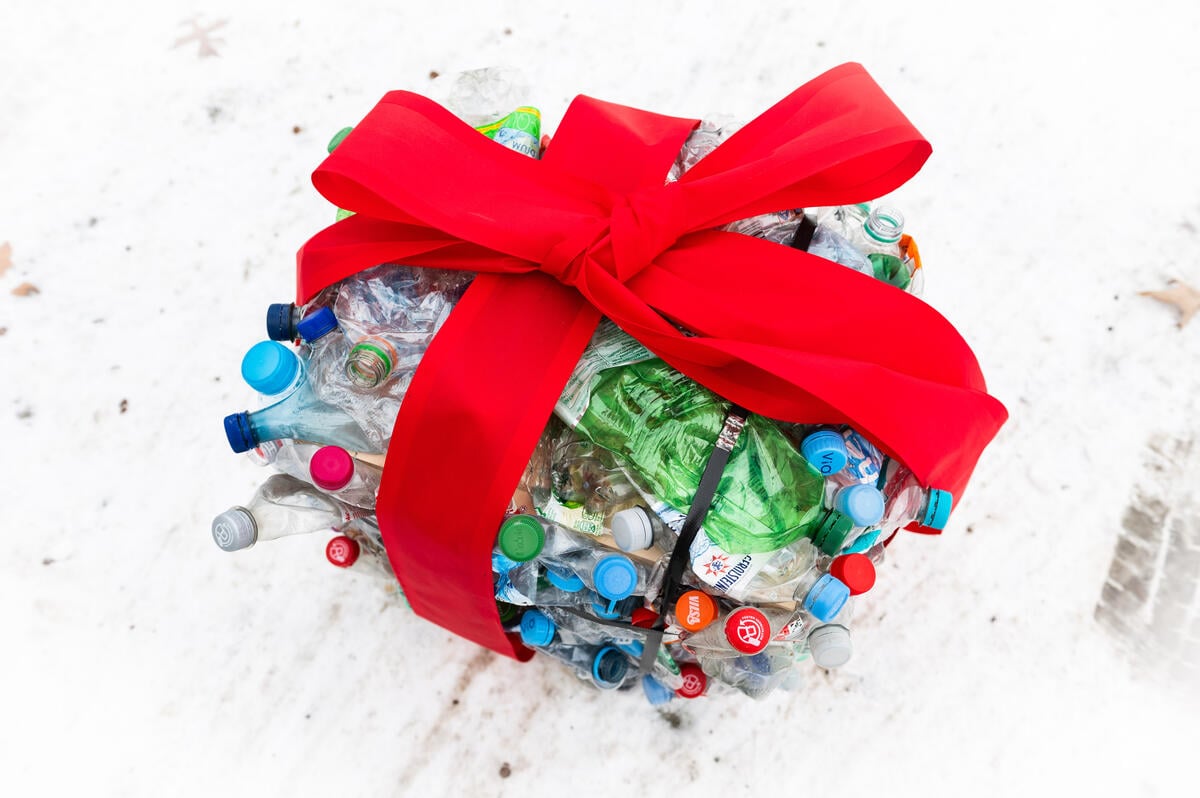
5 ways to disinvite plastic from your holidays
The holidays are here again. ‘Tis the season to hang out with (or just tolerate) family and friends, share (and maybe overindulge in) tasty meals, and enjoy festivities (or stay…
-
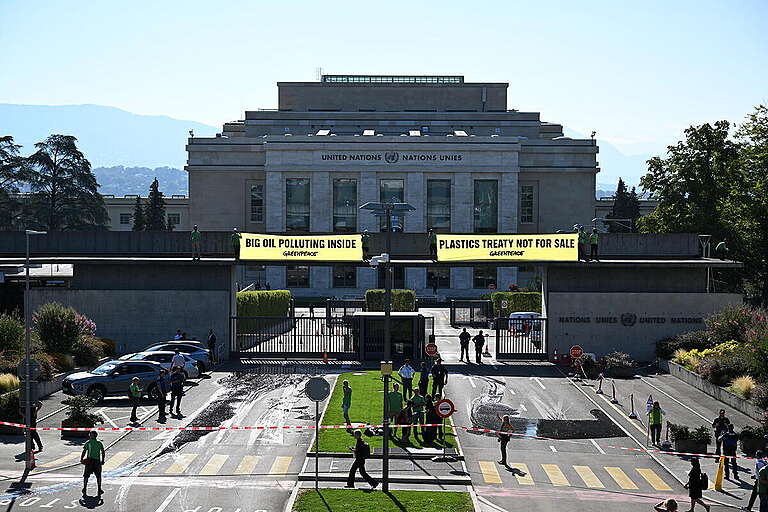
Still no Plastics Treaty: How the fossil fuel industry keeps polluting negotiations
It’s time for world leaders to confront the elephant in the UN Global Plastics Treaty negotiation room: Big Oil.
-
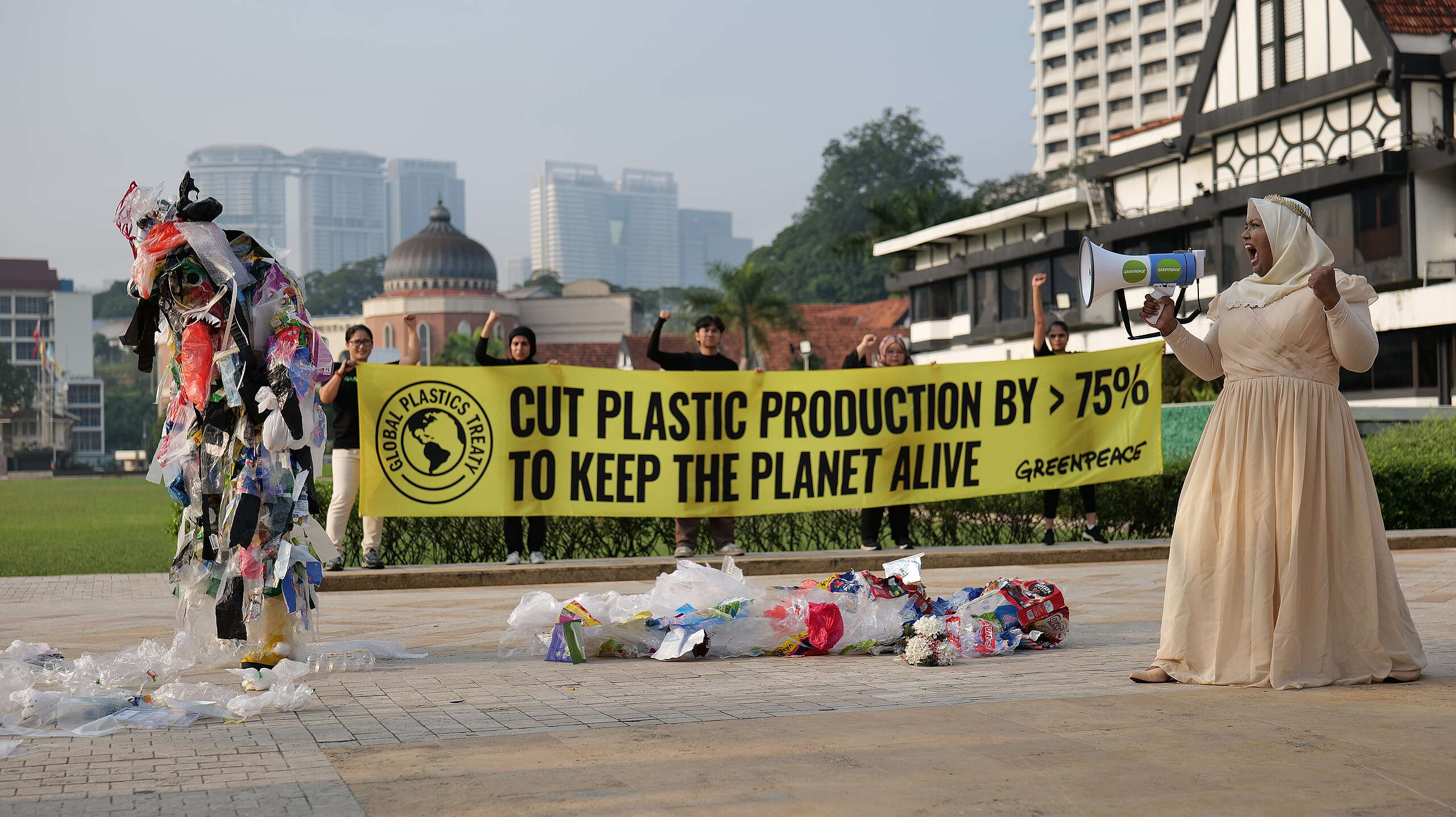
Malaysia’s support of the Global Plastics Treaty at INC5.2
We sent a letter to several ministers, including the acting National Resources and Environment and Sustainability Minister (NRES) Datuk Seri Johari Abdul Ghani on the 5th session of the Intergovernmental Negotiating Committee on Plastic Pollution (INC-5.2) this week with the hopes of landing a final deal, in Geneva, Switzerland.
-
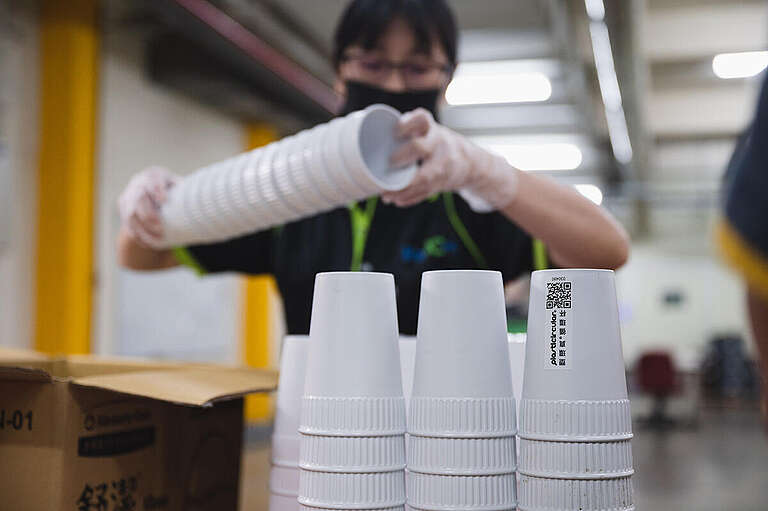
More businesses join the call for a strong UN Plastics Treaty, support global change
As the final scheduled UN Global Plastics Treaty negotiations approach, the voices supporting and calling for an ambitious Treaty are getting louder.
Subscribe for updates
Together we are part of a growing, global movement determined to bring about the changes our planet desperately needs.
